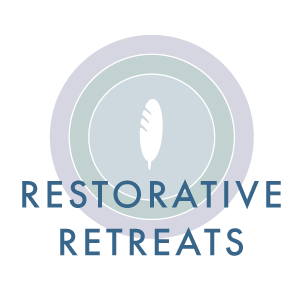Permission to Nap
Napping—sleeping for a short period of time, usually during the day—is as fundamental to human life as breathing. As babies and toddlers, our bodies require frequent naps to recharge as we grow bone, tissue, and neural pathways. Once we become working adults, however, napping is seen as a sign of weakness or lack of commitment. Except, of course, for the “power nap,” celebrated not for its restorative qualities but because it boosts productivity.
I grew up in a farming community in northwest Ohio, where a common unspoken mantra was “work hard or die.” I watched as my parents worked themselves into the ground, eventually dying of diabetes and heart disease. Rather than seeing that as a model to avoid, I saw it as one to emulate. I worked hard to ignore my body’s needs. Better yet, I was rewarded whenever I pushed through illness or fatigue, praised as a hard and dedicated worker. A productive member of society. A trooper.
As soon as I entered my early 40’s, however, my body fought back and said, enough is enough. At first, I resisted to the daily fatigue that cropped up in the afternoons. I felt like an old lady or a melodramatic Victorian romance heroine, “taking to bed.” Even when I finally started giving in and settling into bed for an hour or two in the afternoon, I still kept busy, catching up on emails or social media. If I actually slept during the day, I thought, it was an indication that I was getting sick—the ultimate weakness in an ableist world.
Over time, however, I began to realize that napping itself is a powerful means of resistance to the unsustainable demands of our society. The Nap Ministry, a blog run by black women that considers sleep deprivation a social justice issue, is build on this idea of “naps as resistance.” They urge us to rewrite the narrative that society imposes on us, “that we all are not doing enough.” Napping isn’t weakness; it’s a radical act of self-care, a defiant (if gentle!) push back against the idea that our bodies deserve nothing better than tough love and deprivation, rather than true love and respect.
As many of us adjust to working from home due to the Covid-19 pandemic, we may notice our bodies asking us to nap. This is not an indulgent demand. Scheduling regular naps can help us bring structure to days that usually are broken up into at-home and away periods. They can help recover some equilibrium (mental stress is exhausting, y’all) so that we can return, refreshed, to the unique challenges we’re facing right now. (Parents—I know it’s more of a challenge now that the kids are home all day and night, but there are a few ideas in this 2018 article that can even be implemented while self-isolating!
Join me in giving yourself permission to nap. You’ll be surprised how much more awake and alive you’ll feel.
Love,
Holly

